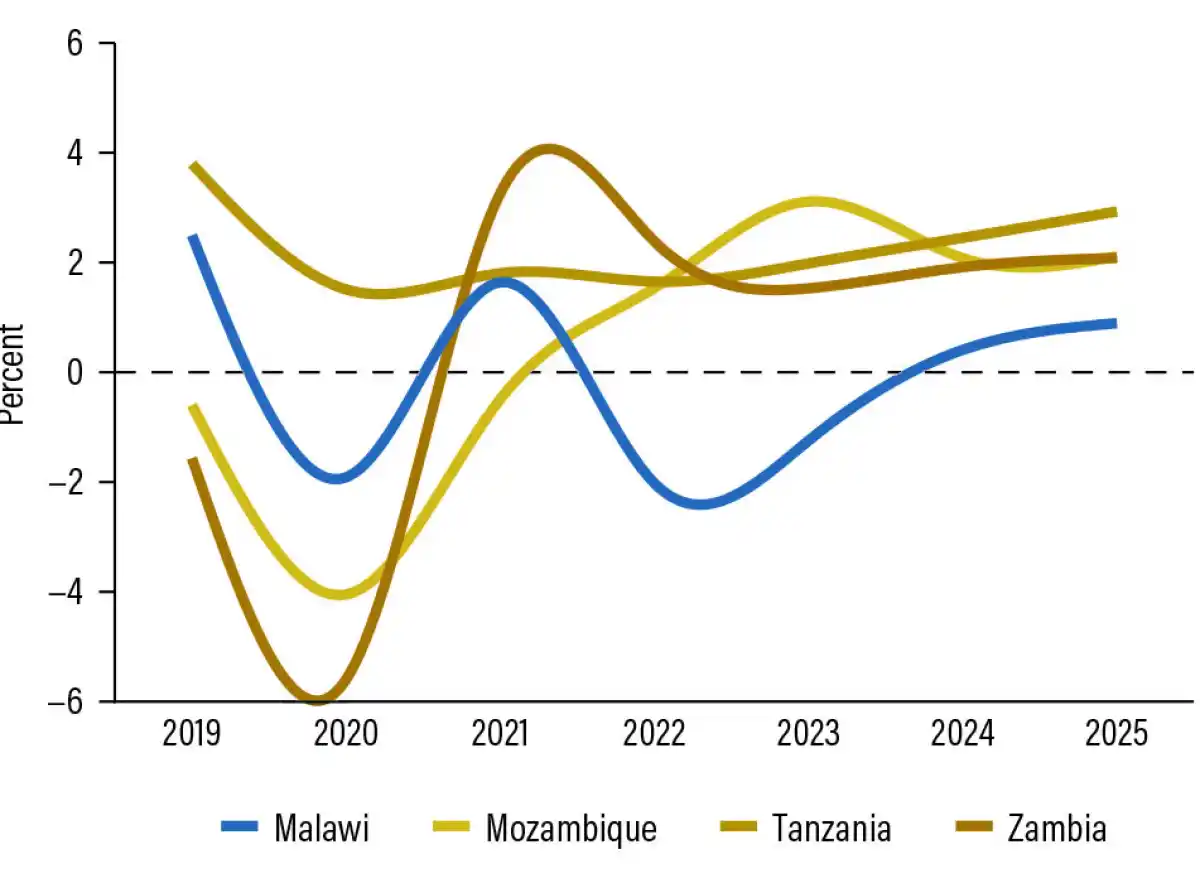
The World Bank has said it expects poverty to worsen in 2024 as rising prices and declining output contribute to heightened food insecurity.
The bank has made the observation in its latest 19th Malawi Economic Monitor (MEM) released last week.
According to the MEM, the share of people living below the international poverty line of $2.15 (about K3, 765) a day is projected to rise to 71.9 percent in 2024.
The World Bank updated the global poverty lines in September 2022 following the release in 2020 of new purchasing power parities (PPPs)—the main data used to convert different currencies into a common, comparable unit and account for price differences across countries.
The new extreme poverty line of $2.15 per person per day, which replaced the $1.90 poverty line, is based on 2017 PPPs.
According to the MEM, Malawi’s economy is projected to grow by 2 percent in 2024, an improvement on the past two years but below the population growth rate of 2.6 percent, leading to a contraction in per capita terms.
“The limited availability of agricultural inputs and the impact of prolonged dry spells during the growing season are expected to reduce agricultural output.
“Continued liquidity challenges in foreign exchange markets are expected to continue affecting the importation of raw materials and productive inputs, constraining economic activity in the industrial and services sectors,” the bank says.
It, however, notes that the implementation of planned macroeconomic and structural reforms to support private investment is expected to boost the potential growth rate to about 4 percent in the medium term, also leading to a reduction in the poverty rate.
According to the International Food Policy Research Institute June 2024 Maize Market Report, retail prices of maize increased by 23 percent.
It adds that prices of maize were highest in the Southern Region and lowest in the Northern Region, adding that maize prices in Malawi were higher than in Tanzania and comparable to the rest of the region at the market exchange rate.
Spot checks in various districts across the country revealed that maize prices hovered at between K750 and K900 per kg.
On March 23, President Lazarus Chakwera declared a State of Disaster in 23 out of the country’s 28 districts due to inadequate rains and prolonged dry spells that have severely damaged crops and food production.
Last week, the United Nations (UN), in collaboration with the Government of Malawi, launched a $136.5 million (about K239 billion) Flash Appeal to address the devastating impacts of El Niño-induced drought currently affecting the country.

The UN said the appeal seeks to provide life-saving assistance, including food, to 4.7 million most vulnerable people.
UN Resident Coordinator Rebecca Adda-Dontoh said the severity of the drought calls for immediate and coordinated action.
“This Flash Appeal is designed to support the national response efforts, addressing urgent needs and filling critical gaps to ensure comprehensive relief.
“We must act swiftly to prevent a humanitarian catastrophe and support the people of Malawi in this time of crisis,” Adda- Dontoh said.








0 Comments